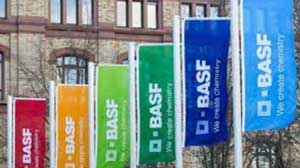Expansions: Solvay’s EUR300 mn expansion of PVDF in France; BASF modernises production of chloroformates and acid chlorides in Germany

Chemical firm Solvay says it is further extending its existing leadership position in the global lithium-ion battery market by expanding its production capacity of high-performance polymer Solef polyvinylidene fluoride (PVDF) at its site in Tavaux, France. Building on its previously announced PVDF capacity increase at its site in Changshu, China, this new project will expand its capacity in Europe to 35 kilotonnes, creating the largest PVDF production site in the region. This investment will be completed by December 2023 and reinforces Solvay’s global leadership in this field, positioning it to capitalise on the growing demand for electric and hybrid vehicles.
The rapid growth of electric and hybrid vehicles is driving unprecedented demand for PVDF, a thermoplastic fluoropolymer used both as a binder and a separator coating in lithium-ion batteries which is essential for the creation of safer and longer-range performance. Solvay adds that its solutions will help its customers optimise energy storage efficiency by increasing the battery’s energy density, safety and power.
Solvay has been developing solutions for the automotive industry for over 30 years. In addition to PVDF, Solvay continues to grow considerable market share as it delivers lightweighting materials that enable automotive OEMs to reduce weight and lower CO2 emissions. With the transformation to electrification expected to accelerate in the next decade, Solvay is on track to double its addressable market value per vehicle. As a result, Solvay expects to grow its Materials business sales to the automotive market from approximately EUR800 million in 2021 to more than EUR2.5 billion by 2030.
Solvay's plans in Tavaux exemplify its execution of its G.R.O.W. strategy announced in November 2019, which focuses investments in high-growth, sustainable solutions in Materials aligned to important emerging megatrends. Furthermore, Solvay's Solef PVDF has also been recognied as a sustainable and profitable solution by the World Alliance for Efficient Solutions for its contribution to cleaner mobility, and was an essential component used by Solar Impulse, the world's first solar-powered aircraft to circumnavigate the world led by renowned balloonist, Bertrand Piccard.

Meanwhile in other news, German firm BASF is to modernise the entire infrastructure, including the facilities for the production of chloroformates and acid chlorides at its Ludwigshafen Verbund site. The company is investing a low three-digit million euro amount for this. The measures, which will be completed in the course of 2025, will increase the company's capacity for these products at the site by around 30%. BASF is one of the world's leading manufacturers of chloroformates, acid chlorides and alkyl chlorides, with a current capacity of 60,000 tonnes/year, as well as production facilities at its sites in Ludwigshafen, Germany, and Yeosu, Korea.
"With our investment project we prove our long-term commitment to these high-value specialty products," said Frank Stein, head of the Regional Business Unit Europe in BASF's Intermediates division, adding, "As a leading producer in this field, we want to continue to reliably support our customers' growth with a state-of-the-art infrastructure."
BASF sells around 30 individual products from the group of chloroformates, acid chlorides and alkyl chlorides. Customers use the chemicals for further processing in a wide range of applications, ranging from synthesis building blocks for pharmaceuticals and crop protection products to the production of organic peroxides. Peroxides prove their worth in the production of coating materials used, for example, to coat solar panels. They are also used in the production of a wide range of plastics for everyday use.
(IMA)Subscribe to Get the Latest Updates from IMA Please click here
©2022 Injection Moulding Asia. All rights reserved.














